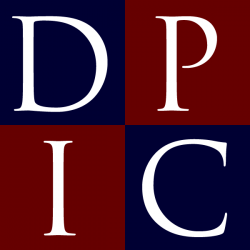Graphic Designer/Digital Media Specialist
- Death Penalty Information Center
- Washington, D.C.
- Aug 29, 2024
Job Description
Job Description
The Death Penalty Information Center seeks a graphic designer/digital media specialist to join our team. The Graphic Designer will be responsible for updating and improving our visual resources by producing custom illustrations, developing / revising data visualizations, enhancing our brand image, producing compelling social media infographics, and designing interactive website features. The ideal candidate will be able to create a strong visual language that will make our website, presentations, and printed materials approachable and compelling. They will work closely with our Digital Director to implement new ideas as well as assist in developing and implementing our human-computer interaction road map. This is a one-year position, with a possibility of renewal.
Qualifications
Required
- Creating custom illustrations and graphics for our website
- Creating and updating data visualizations
- Formatting and laying out print / PDF reports
- Art direction for web versions of reports
- Designing interactive web experiences
- Photo editing and art direction of topic pages
- Designing and creating social media posts
- Designing and preparing weekly email newsletter
- Working with our Executive Director to prepare for presentations and talks
- Collaborating on interface workflow for database and content management system
- Assisting with website maintenance and updates
- Collaborating with outside vendors on website improvement projects and branding
Skills
Required
- Commitment to social justice
- Interest in the death penalty or criminal legal system
- Excellent design, illustration, and typography skills
- Ability to present complex information in visual, approachable, and clearly understandable ways
- Excellent attention to detail and deadlines
- Experience with accessibility design and ensuring data graphics are designed for users with visual impairments or color blindness
- Proficiency with Adobe Suite (Illustrator, Photoshop, InDesign)
- Proficiency with Figma
- Experience with Canva
- Experience developing presentations in Keynote or PowerPoint
Preferred
- Experience preparing materials for print and working with printers
- Proficiency with CSS and tailwindcss
- Experience with Adobe Premiere, Adobe Audition, Apple Final Cut, Apple Logic
- Experience with JavaScript, Alpine.js, D3.js, and Vue.js
- Knowledge of Twig, Craft CMS, Laravel, PHP, or MySQL
- Experience with version control and Git
Experience
- A portfolio with digital and print examples. Preference for designs showcasing experience effectively presenting complex data in a visually engaging manner
- Bachelor’s degree in graphic design, visual arts, or a related field preferred
- 2+ years experience designing for web
Benefits
- Paid holidays, vacation, and sick leave
- Health, vision, and dental insurance
- 401(k) matching
How To Apply
Submit a cover letter, resume, and two work samples via email to careers@deathpenaltyinfo.org.
Occupations
URL
Salary
Listing Logo

